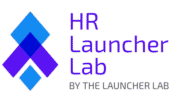Personalized employee training has become a powerful strategy for helping employees develop the skills they need most, faster and more efficiently. For small businesses, where resources are often limited, harnessing the power of artificial intelligence (AI) can make training both scalable and targeted. By using AI tools, you can tailor learning experiences to individual needs, improve skill acquisition, and track employee progress—creating a more effective workforce with minimal administrative burden.
This guide explores how small businesses can leverage AI to personalize training for employees, create development plans, and optimize performance, all while managing small teams with limited resources.
- Why Personalization Matters in Employee Training
- Step 1: Leverage AI for Tailored Learning Paths
- Step 2: Use AI for Real-Time Feedback and Performance Tracking
- Step 3: Build Personalized Development Plans
- Step 4: Optimize Time and Resources with AI
- Final Thoughts: The Future of Personalized Training with AI
Why Personalization Matters in Employee Training #
Every employee brings unique strengths, weaknesses, learning styles, and career goals. Traditional “one-size-fits-all” training often fails to address these individual differences, leading to wasted resources and reduced engagement. In contrast, personalized training ensures that each employee gets the skills they need to excel in their role.
Key Benefits of Personalized Training: #
- Increased Engagement: Training that’s tailored to an employee’s specific role and goals is more relevant and engaging.
- Faster Skill Development: Employees learn at their own pace, focusing on areas where they need improvement, which leads to faster mastery of skills.
- Better Retention: Personalized learning paths help employees retain knowledge longer because they’re interacting with material that’s directly applicable to their work.
- Higher Productivity: Employees trained in the specific skills they need are more productive and can contribute to company goals more effectively.
By using AI, small businesses can streamline this process, making it manageable even with a limited workforce and budget.
Disclaimer #
The information on this site is meant for general informational purposes only and should not be considered legal advice. Employment laws and requirements differ by location and industry, so it’s essential to consult a licensed attorney to ensure your business complies with relevant regulations. No visitor should take or avoid action based solely on the content provided here. Always seek legal advice specific to your situation. While we strive to keep our information up to date, we make no guarantees about its accuracy or completeness.
This content may contain affiliate links, meaning we receive a commission if you decide to make a purchase through our links, at no cost to you.
For more details, refer to our Terms and Conditions.
